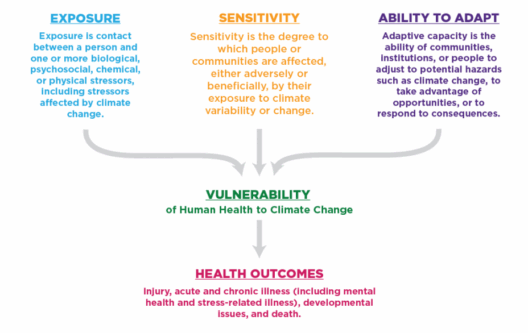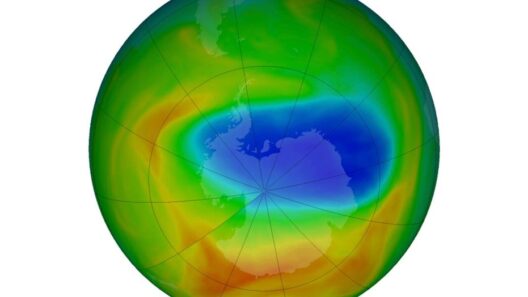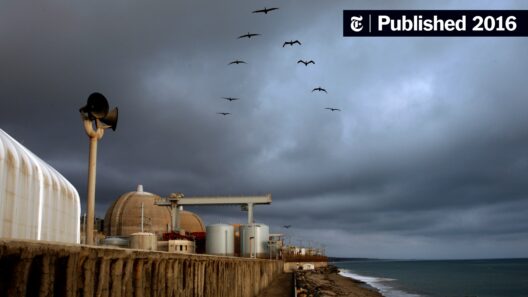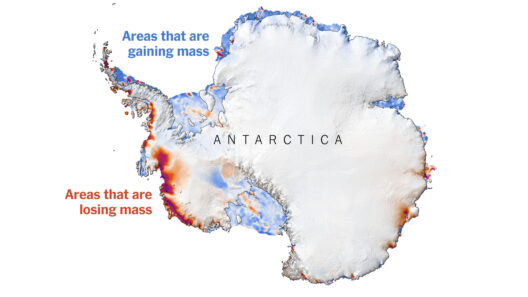In the vast expanse of our planet, the verdant fields of agriculture are often perceived as idyllic sanctuaries, nurturing crops and livestock to sate humanity’s unending appetite. Yet beneath this pastoral facade lies an intricate tapestry of ecological impact, woven deeply into the fabric of climate change. The livestock industry, in particular, emerges as a prodigious force in this narrative, a towering iceberg whose hidden contribution to global warming is all too often overlooked.
Imagine a world where every pastoral symphony of sheep bleating and cows mooing harmonizes with trails of methane wafting into the atmosphere. This is not a mere pastoral illusion; rather, it paints a strikingly accurate picture of the livestock industry. Within the arcane world of greenhouse gases, methane—a potent byproduct of enteric fermentation in ruminants—emerges as a key antagonist in the story of climate change. Though methane lingers in the atmosphere for a far shorter span than carbon dioxide, it wields over twenty times the heat-trapping potential over a two-decade span. This drama, playing out on a global scale, equips livestock farming with a formidable legacy of warming.
Moreover, the dietary choices that drive livestock production perpetuate a vicious cycle, further exacerbating the predicament. The staggering demand for meat and dairy spurs farmers to convert swaths of previously untouched forests and grasslands into grazing pastures. This unrelenting quest for animal-based protein, a culinary staple in many cultures, incites deforestation, a practice that extinguishes biodiversity while diminishing nature’s ability to sequester carbon dioxide. As ancient trees fall victim to the axe, humanity’s efforts to combat climate change become akin to attempting to fill an ocean with water using a thimble.
The intricacies of livestock farming extend beyond methane emissions and deforestation. Manure, often seen merely as a byproduct, emerges as another clandestine hero turned villain in this narrative. Poorly managed livestock waste has the potential to leak potent greenhouse gases such as nitrous oxide—an even more potent emissary of warming than methane—into the atmosphere. This dual threat amplifies the environmental impact of livestock farming, creating a feedback loop that seems insatiable in its potency.
So why does this elephant in the room—or rather, this cow in the field—remain largely unaddressed in mainstream discussions of climate change? The answer may lie in the cultural lens through which we view food production. Livestock has been intertwined with human civilization throughout history; it serves not only as sustenance but as a marker of identity and tradition. The rituals surrounding livestock can embody communal ties, reflecting shared values that transcend generations. These deep-seated associations often overshadow the pressing need for reform in our agricultural systems.
Addressing the livestock industry’s contribution to global warming requires a multifaceted approach. One avenue is the promotion of alternative protein sources. Plant-based diets, which are gaining momentum, could emerge as a beacon of sustainability. Legumes, grains, and various innovative protein replacements offer viable solutions that not only lessen the environmental burden of livestock farming but also hold the potential to nourish an ever-growing global population.
However, reform does not solely hinge upon individual dietary choices; systemic change is paramount. Support for regenerative agricultural practices can shift the paradigm towards a more harmonious relationship with the land. Techniques, such as rotational grazing and agroforestry, encourage a symbiosis among livestock, crops, and the ecosystem. By sowing the seeds of ecological stewardship, farmers can reconstruct agricultural models that mirror natural processes, sequestering carbon and bolstering biodiversity.
In tandem, policymakers must steer discussions towards an inquisitive exploration of the livestock industry’s policies. Emphasizing subsidies and incentives for sustainable farming practices can promote an environmental ethos that rewards farmers for stewardship rather than mere production. Through comprehensive reform, the insidious links between livestock farming and climate change can be unraveled, fostering a sustainable future.
The road ahead, however, is fraught with challenges. Entrenched interests within the agricultural sector often resist change, viewing the push for sustainability as a threat to their livelihoods. Yet, the clarion call for change cannot be stifled. Education plays an extraordinary role in rewriting the narrative surrounding livestock and its implications for climate change. By fostering a greater understanding among consumers and producers alike, an enlightened populace can galvanize collective action.
Ultimately, the journey towards mitigating the livestock industry’s legacy of global warming rests on the ability to bridge the gap between tradition and innovation. It requires courage to reimagine our dietary habits while preserving those cultural ties that enrich our lives. With every conscious decision regarding food—from farm to table—we wield the power to challenge the status quo and write a new story: one where agriculture can flourish in harmony with the planet.
The unmasking of livestock’s hidden contribution to environmental degradation serves as a sobering reminder of our interconnectedness with the planet. It calls for a collective awakening to the changes needed to preserve the sanctity of our shared home. In recognizing this intricate relationship, we illuminate the path forward, allowing our actions to resonate with the earth’s urgent pleas for relief.







